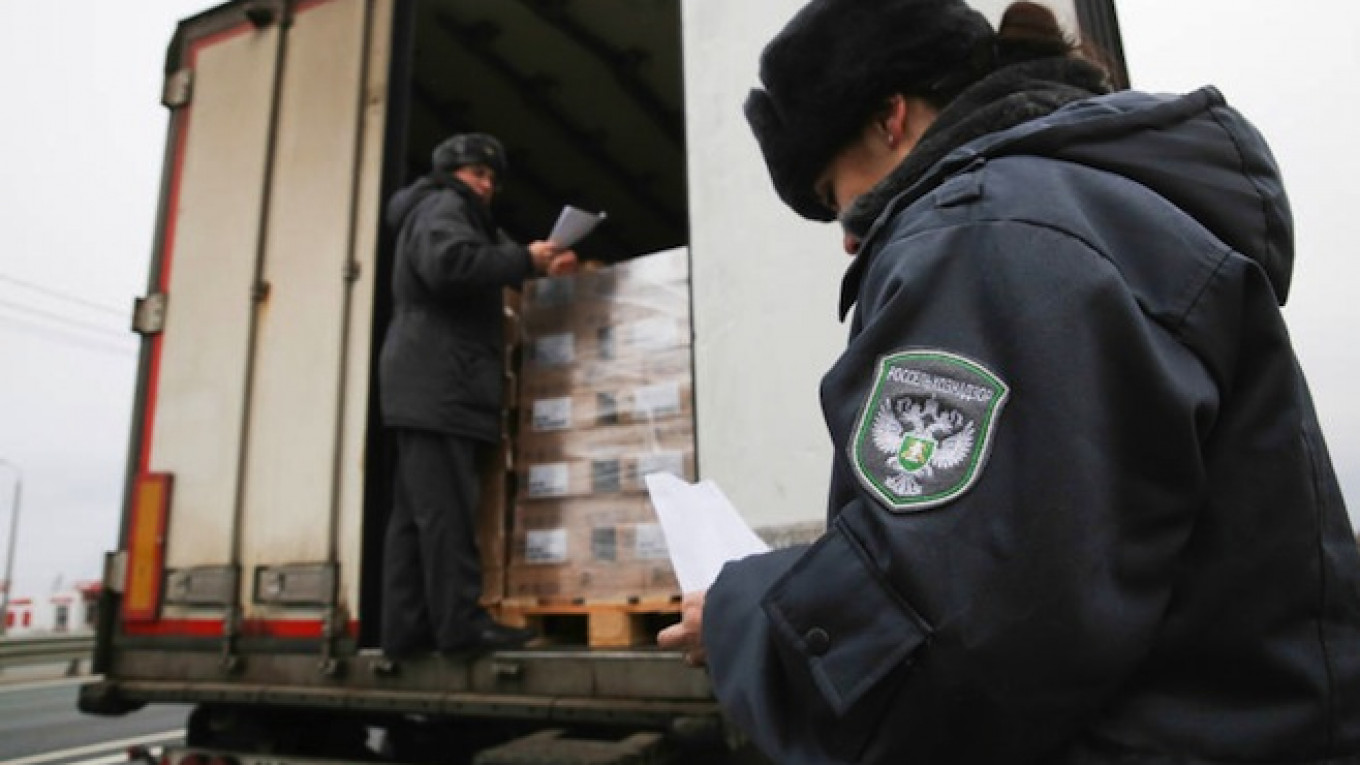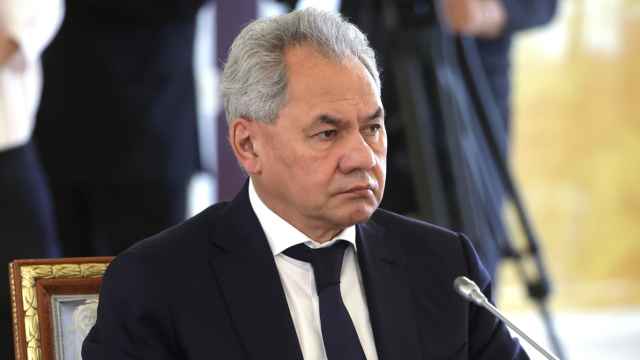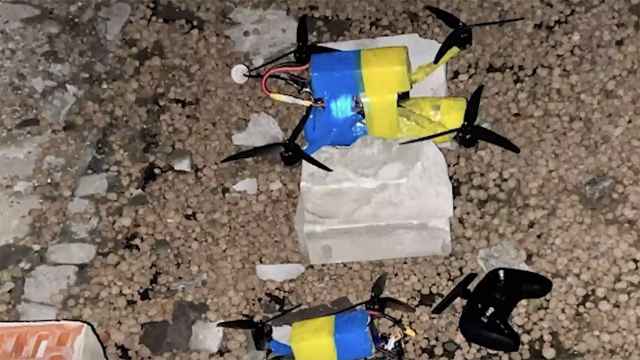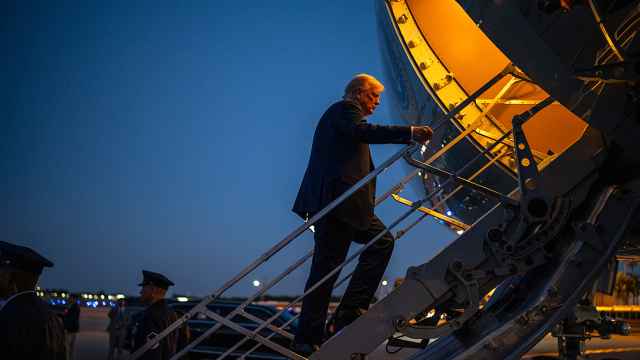Russia has restricted some food imports from Turkey and warned of widespread sanitary violations by Turkish suppliers after the country's military shot down a Russian warplane over Syria on Tuesday.
Amid widespread anger in Russia at the downing, authorities have responded with economic measures, placing embargoes on a number of Turkish poultry producers and curtailing Russian tourist travel to the country.
On Wednesday the Agriculture Ministry upped the ante, announcing that it had analyzed Turkish produce following complaints from consumers and industry groups. “Unfortunately, on average 15 percent of Turkish agricultural produce doesn't meet Russian [quality] standards,” Agriculture Minister Alexander Tkatchev was quoted as saying Thursday on the ministry's official online portal.
The statement said increased controls would be imposed that would include extra checks at production sites inside Turkey and at the border, where customs agents have already begun inspecting all freight, the Interfax news agency reported Thursday.
Kremlin spokesman Dmitry Peskov characterized the actions as increased safety measures, and said Thursday that “no embargo is being imposed,” according to the RBC news agency.
Meanwhile, Prime Minister Dmitry Medvedev on Thursday instructed the government to draft a list of economic measures against Turkey.
Turkey had been a beneficiary of Russian efforts to diversify imports away from Europe following sanctions over the Ukraine crisis. According to Interfax, 20 percent of vegetables imported to Russia come from Turkey.
But fury over the downing is fraying those bonds, and sanitary violations in Russia have a history of coinciding with political spats. Gennady Onishchenko, a popular former health official now advising the government, was quoted on Wednesday as saying: “Every Turkish tomato you buy … is your contribution to a rocket to shoot down our boys.”
A Message from The Moscow Times:
Dear readers,
We are facing unprecedented challenges. Russia's Prosecutor General's Office has designated The Moscow Times as an "undesirable" organization, criminalizing our work and putting our staff at risk of prosecution. This follows our earlier unjust labeling as a "foreign agent."
These actions are direct attempts to silence independent journalism in Russia. The authorities claim our work "discredits the decisions of the Russian leadership." We see things differently: we strive to provide accurate, unbiased reporting on Russia.
We, the journalists of The Moscow Times, refuse to be silenced. But to continue our work, we need your help.
Your support, no matter how small, makes a world of difference. If you can, please support us monthly starting from just $2. It's quick to set up, and every contribution makes a significant impact.
By supporting The Moscow Times, you're defending open, independent journalism in the face of repression. Thank you for standing with us.
Remind me later.






